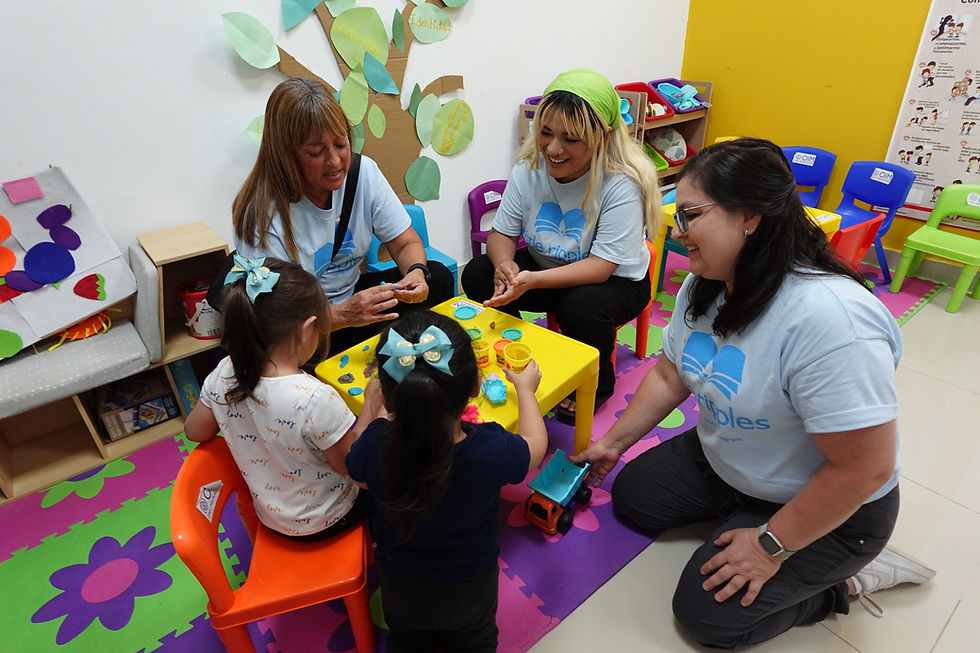The Ripples
- Jessica Birzin
- Jun 16, 2016
- 3 min read
This was first posted on LittleRipples.org
Today was our first day in refugee camp Goz Amer since leaving Los Angeles six days ago. It never ceases to amaze me the amount of time, plane rides, planning, and coordinating it takes to get to eastern Chad. Arriving to Little Ripples School this morning and being greeted by our refugee friends and colleagues was like taking a long deep breath in and letting it out slowly. It was moment of calm, peace, and happiness. We were embraced and welcomed by those that are the reason we put up with such arduous travel.
Following the greetings, we did our best to touch base with everybody. We met with the Refugee United Soccer Academy coaches, the Little Ripples Assessment Team, the majority of the Little Ripples teachers and directors, and our Project Coordinator, Oumda Tarbosh. We visited two Little Ripples in-home Ponds and saw some of the curriculum taking place: the outdoors games, the mindfulness, dancing and songs, literacy through play, a daily meal, and hand-washing with soap. My favorite moment was the dancing. I tried to capture it on camera but just imagine three-to-five-year-old Darfuri boys and girls dancing carefree to Arabic music! It was a surprise for me because this was something the teachers added themselves to the daily curriculum, but it was also a marker of success. The input from the teachers is an approach and aspect of Little Ripples that we really value and cultivate.
Today, we were also able to witness how Little Ripples School is used by others from the community when Little Ripples is not in session. We met with youth who have self-organized and self-funded an after-school English program. I spoke with the young man who started the program, Imad. He said seven teachers including himself are teaching over 160 students ranging from 10 to 45 year olds. They teach all levels of English. In order to offer these classes, Imad and his fellow teachers use the Little Ripples School space, download English lessons onto their phones when they are able to access the internet, transfer the lessons to laptops, and power the laptops and a speaker with a solar panel and battery. They ask the students to contribute what they can so that they can afford to print lessons and purchase materials for learning.
Seeing and learning of all the effort they have taken to implement this program for their community, I asked Imad what his motivations were. He responded with the following four points:
– “To develop the community, because we saw that people in our community lack education, especially language. Some only speak their local tribe’s language so that does not help them. With English, maybe they will have job opportunities.
– To help with resettlement cases for those being sent to the U.S. or Canada. We can help them prepare to communicate so they don’t have to face language difficulties when they arrive there.
– To help people in our community express their ideas, problems.
– To help our community join the world.”
Imad said the learning environment and ability to teach so many students was greatly improved because of Little Ripples School. “The environment is very nice; it’s clean and safe,” he said, “and now many more people are motivated to attend class because we are at Little Ripples School.”
Imad and his English program is another example of the ripples of Little Ripples. Since building the beautiful school in 2013, we have promoted it to be a place for the community. Today we were able to see and hear, years later, that this building and peaceful environment has created impact beyond the young children and teachers.


